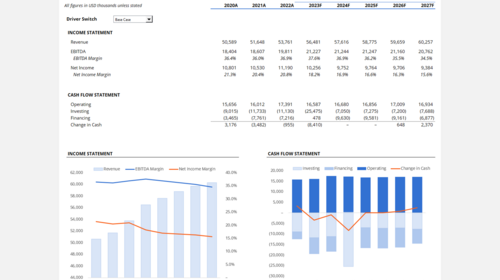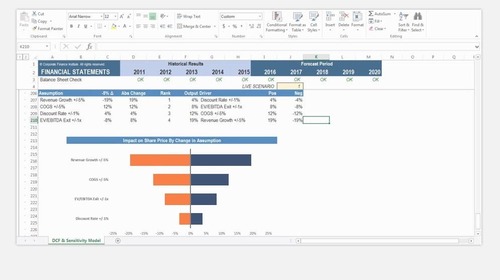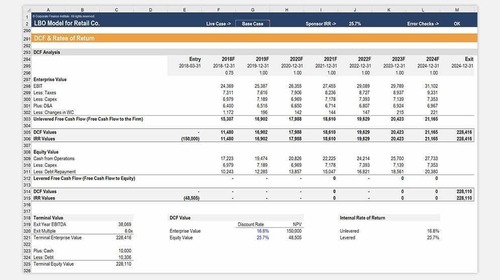Real Estate Appraiser
An individual with appropriate qualifications and credentials to estimate the fair market value of a real estate asset
Over 1.8 million professionals use CFI to learn accounting, financial analysis, modeling and more. Start with a free account to explore 20+ always-free courses and hundreds of finance templates and cheat sheets.
What is a Real Estate Appraiser?
A real estate appraiser is someone that is hired or commissioned to estimate the value of real property. The appraiser must be accredited by any governing bodies within the jurisdiction in question.
It’s also a requirement that the real estate appraiser be completely objective and without bias towards any one (or more) stakeholders in a transaction. This typically requires that they be paid in advance of services being rendered, so there is no risk that the commissioning party might withhold funds until a “favorable” estimate of value is provided.
While the steps and processes are similar for residential and commercial properties, the nature of the analysis and the overall scope of work is sufficiently different that most appraisers specialize in only one of these two property classes.

Summary
- A real estate appraiser is an individual with appropriate qualifications and credentials to estimate the market value of a real estate asset.
- Complete objectivity is required to provide an unbiased estimate of value.
- Specific appraisal formats may vary slightly by jurisdiction, but valuation techniques and general steps and responsibilities are typically quite similar.
Importance of an Appraisal Report
Real estate appraisers are tasked with conducting an appraisal and then preparing an appraisal report about a specific property (usually called the “subject property.” These reports serve two broad functions:
- To provide a fair and unbiased estimate of market value for the subject property.
- To identify (and help stakeholders understand) any potential property-specific risks or red flags.
Appraisal reports are used for a variety of purposes but may only be “legally relied upon” by the appraiser’s client – which is the party that orders the appraisal and to whom the appraisal report is addressed in the Letter of Transmittal.
Purposes for commissioning an appraisal from a real estate appraiser include, but are not limited to:
- Facilitating the transfer of ownership of real property – While the seller and the buyer will ultimately determine the “clearing price” for a property, an appraisal can and should provide a starting point for these negotiations.
- Supporting a financing request – Because market forces may skew a property’s purchase price, mortgage lenders (both commercial and residential) require an objective and unbiased estimate of value in order to understand the actual collateral value and to calculate an appropriate loan amount.
- Resolving legal, tax, or estate issues – Accounting treatments around depreciation, as well as related-party transactions through holding companies and other tax strategies, make it common for the book value of real estate to vary materially from its actual market value. Appraisals are a useful tool to help resolve these potential issues.
Duties and Responsibilities of a Real Estate Appraiser
While there is some nuance depending on where an appraiser is certified and where a property is located, in general, a real estate appraiser will adhere to the following steps when taking on a client mandate.
- Identify the problem that needs solving in order to determine the “scope of work” – Who is the client, what is the “effective date,” is the estimate for estate planning purposes or to support a financing request, etc.?
- Collect data – This includes data for the subject property itself, as well as market data in the surrounding area and comparable property data. An appraiser is also required to physically travel to the site to inspect it.
- Analyze the data – Including understanding the property’s marketability; evaluating supply/demand forces at the national, regional, and local levels; and evaluating the property’s “highest and best use” (among other proprietary techniques).
- Apply the different approaches to valuation (noted in the next section).
- Reconcile the value indicators and report a final opinion of value – Meaning the appraiser’s best estimate of a fair market property value.
Valuation Approaches
A real estate appraiser will generally employ three valuation techniques. These are:
The Cost Approach
The cost approach is based on the concept of replacement cost. The appraiser adds the estimated land value to the estimated cost to reproduce a building with equal utility and desirability, less their estimate of accumulated depreciation to any buildings or improvements.
The Income Approach
The income approach is particularly important for investment properties since a property’s value is, in many ways, a function of its ability to generate net operating income.
The most common type of income assessment is the Direct Capitalization Method. With this method, a real estate appraiser will determine a property’s adjusted net operating income (NOI) and apply an average capitalization rate (based on market comparable properties) to determine an estimate of value.
The Direct Comparison Approach
Sometimes also called the Sales Comparison Approach, this method is most appropriate when there have been a lot of transactions of similar properties in the area or where there are a lot of active listings of similar properties.
The real estate appraiser tries to adjust for and reconcile unique elements between the subject property and the comparable properties – things like physical or economic characteristics, zoning or land use restrictions, and specific geographic location (i.e., corner lot, etc.). As a result, the direct comparison approach usually yields a “range” of potential values.
Becoming a Real Estate Appraiser
In order to become a licensed appraiser, there are formal coursework and experience requirements that may vary slightly by jurisdiction or region. It is critical to research the industry and to understand the necessary skills and qualifications. This may involve online investigation, conversations with appraisers, and the like.
Success as a real estate appraiser relies heavily on strong communication, attention to detail, and time management, but also on proficiency in the fields of data analysis and mathematics―a core component of the job is using market data to inform the appraisal process.
Ultimately, once the industry is determined to be a good fit, the process of becoming a real estate appraiser can be distilled into six steps:
- Complete the necessary coursework under the supervision of an appraiser for a trainee license, depending on the country, state, province, or region.
- Obtain 1,000+ hours of field experience as a trainee appraiser over a six-month to multiple-year period.
- Complete final coursework (specifics vary by location).
- Pass the Licensed Residential (or Commercial) Exam.
- Apply for a Real Estate Appraiser License.
- Find a job in the industry.
Additional Resources
Thank you for reading CFI’s guide to a Real Estate Appraiser. To keep learning, the following resources will be helpful:
Create a free account to unlock this Template
Access and download collection of free Templates to help power your productivity and performance.
Already have an account? Log in
Supercharge your skills with Premium Templates
Take your learning and productivity to the next level with our Premium Templates.
Upgrading to a paid membership gives you access to our extensive collection of plug-and-play Templates designed to power your performance—as well as CFI's full course catalog and accredited Certification Programs.
Already have a Self-Study or Full-Immersion membership? Log in
Access Exclusive Templates
Gain unlimited access to more than 250 productivity Templates, CFI's full course catalog and accredited Certification Programs, hundreds of resources, expert reviews and support, the chance to work with real-world finance and research tools, and more.
Already have a Full-Immersion membership? Log in





